
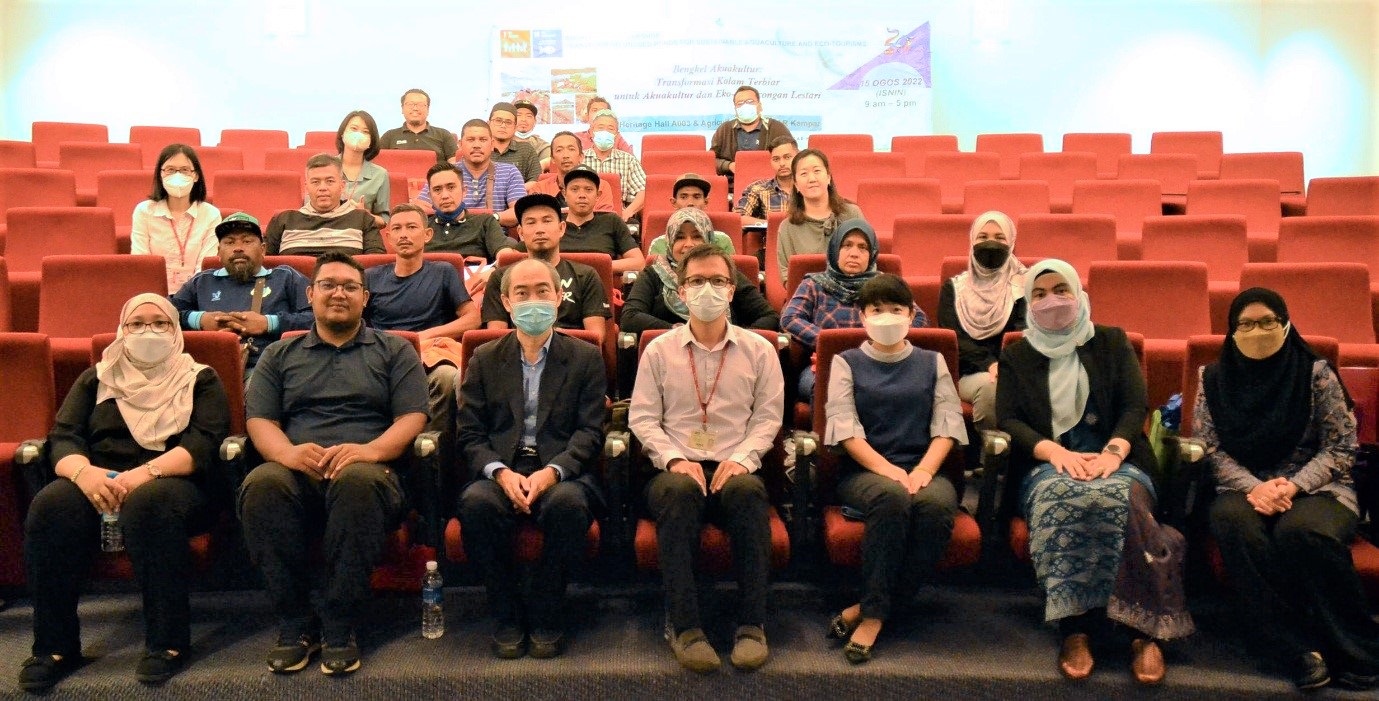
Participants, speakers, and organising committee at the aquaculture workshop
The aquaculture workshop themed Transforming Unused Ponds for Sustainable Aquaculture and Eco-tourism was successfully held at UTAR Kampar Campus on 15 August 2022. The workshop was co-organised by UTAR Faculty of Science (FSc), Universiti Malaysia Terengganu (UMT), Universiti Utara Malaysia (UUM) and Universiti Pendidikan Sultan Idris (UPSI).
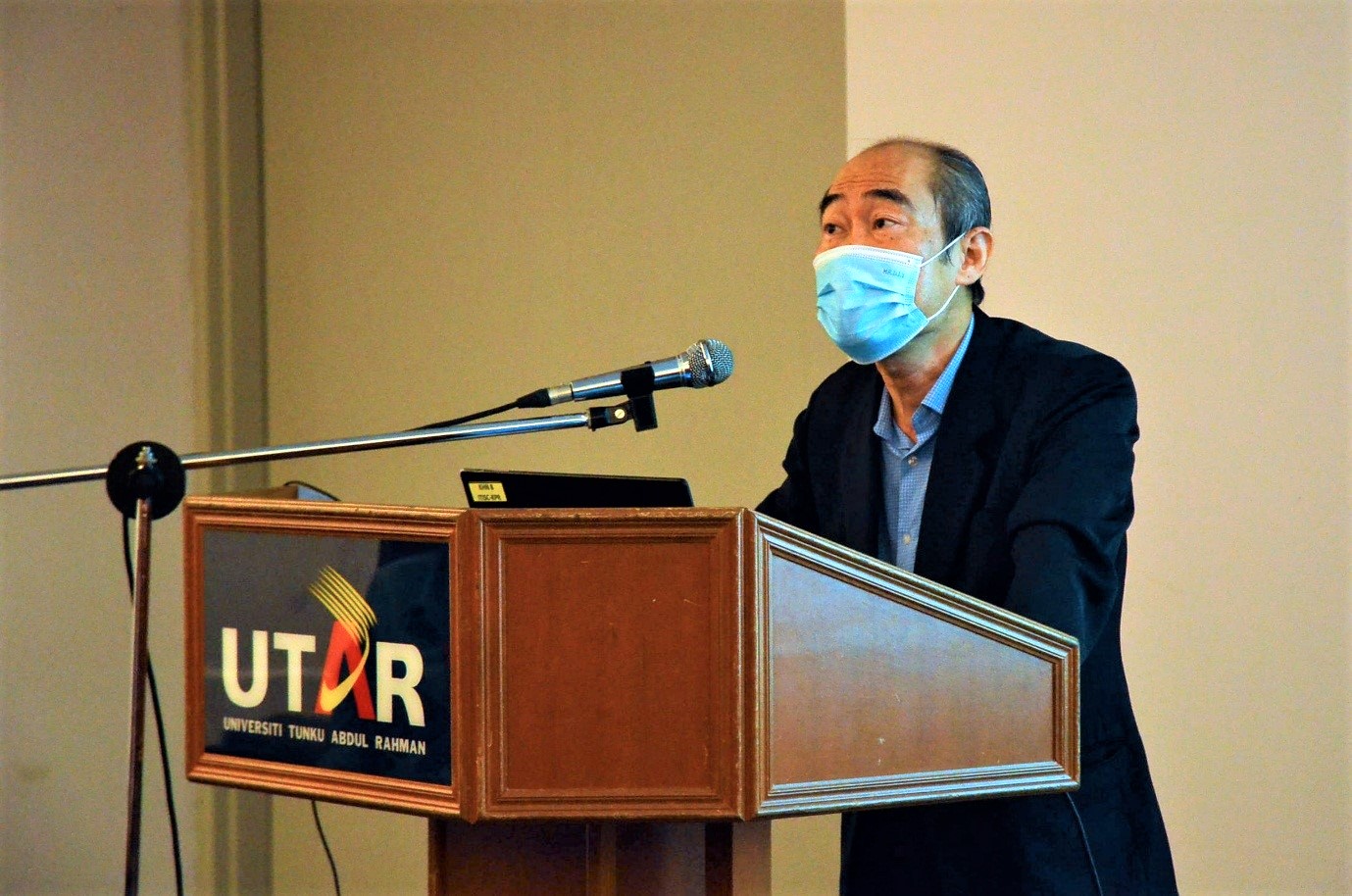
Dr Lim highlighting the need to transform abandoned tin mining areas
Present to officiate the workshop was FSc Dean Assoc Prof Dr Lim Tuck Meng. He said, “We can find many abandoned tin mining areas in the Kinta and Klang Valleys. In the 1880s, the price of tin ore dropped drastically, which render the mining activity no longer profitable. These abandoned tin mining areas also do not bring any benefits to the economy. Therefore, we must put effort to transform these areas for fish farming, which can restore the use of land and bring profits to the fish farmers and the country due to the excess income. Therefore, the aquaculture workshop today is a timely and good platform for all participants from the aquaculture industry to discuss, share ideas and information and join in the effort to make aquaculture more sustainable and tourist-friendly. Thank you to our co-organisers for their support and for making this workshop a success.”
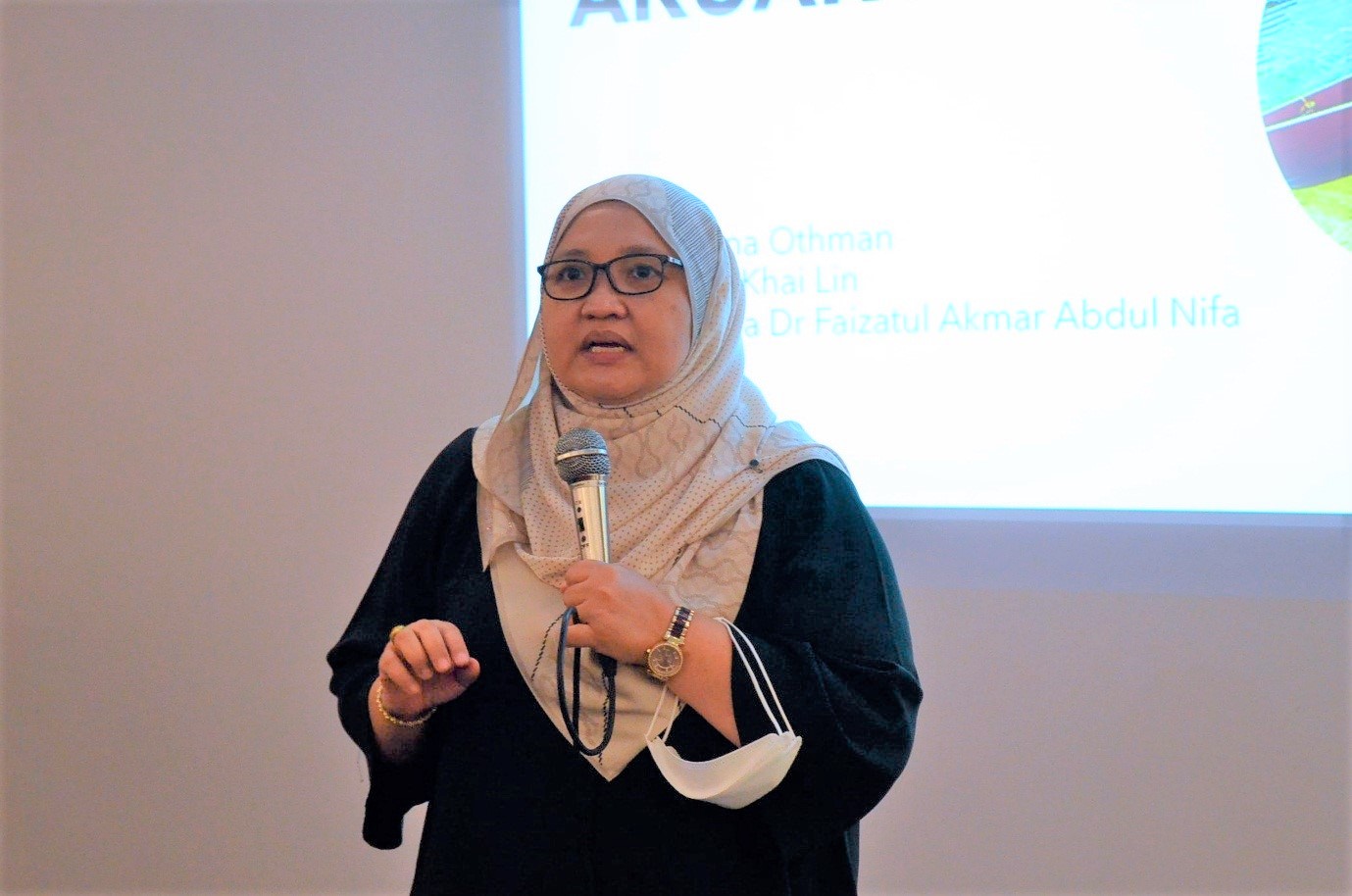
Dr Shahrina explaining the importance of innovation
The first session titled Agro Entrepreneurship and Food Chain Management (Keusahawanan Agro dan Pengurusan Rantaian Bekalan) was conducted by Dr Shahrina binti Othman from UUM. Her information on aquaculture entrepreneurship enlightened participants on the actual process of entrepreneurship and its importance. Participants also learnt about the various agencies and institutions that offer entrepreneurship programmes to educate aspiring entrepreneurs. She also emphasised the importance of innovation, whereby entrepreneurs transform opportunities into marketable ideas, and highlighted that the ability to innovate is also a catalyst for change. She also engaged participants in an activity which saw participants drafting their Business Model Canvas (BMC) which makes planning a business more effective.
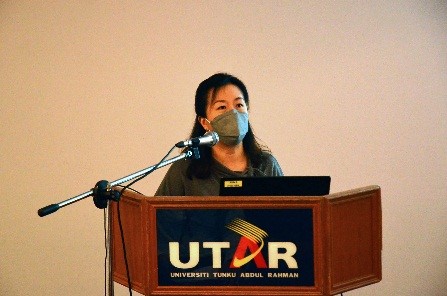
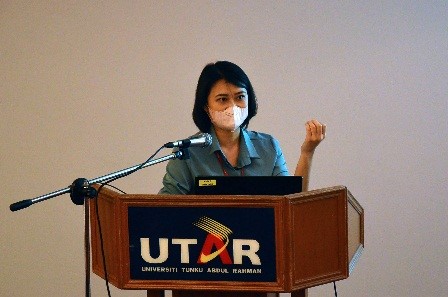
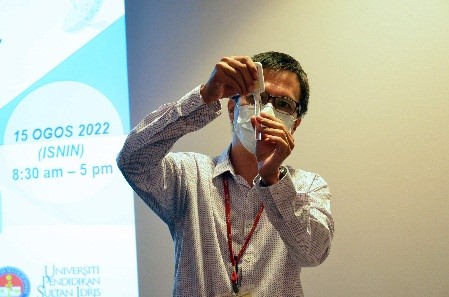
From left: Dr Ooi, Dr Teoh, and Dr Wong’s presentation on water quality management
The second session was conducted by FSc academics Dr Ooi Ai Lin and Dr Teoh Chaiw Yee. Dr Ooi spoke on Water Quality Management for Aquaculture (Pengurusan Kualiti Air untuk Aquakultur), which educated participants on ways to maintain the quality of water to lower death rates of fishes, produce quality breed, and optimise the growth and health of the fishes. She also shared factors affecting the quality of water and clinical symptoms that fish farmers should be attentive to for early intervention. She also listed, dissolved oxygen, pH, temperature, ammonia, nitrate, nitrite, and turbidity levels as important parameters to determine the quality of water. Meanwhile, Dr Teoh introduced aquaponics, a system that combines aquaculture and hydroponic. Participants also learnt about the advantages and disadvantages of aquaponics and were taught the ways to set up the aquaponics system. Organising Chairperson Assoc Prof Dr Wong Wey Lim gave a live demonstration of the technique and explained the tools involved in testing the quality of water.
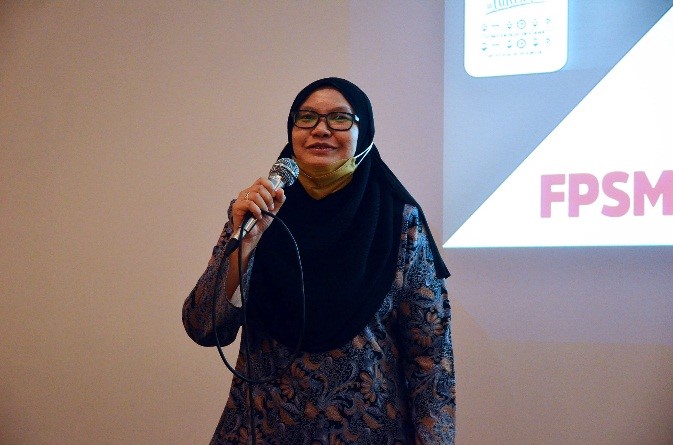
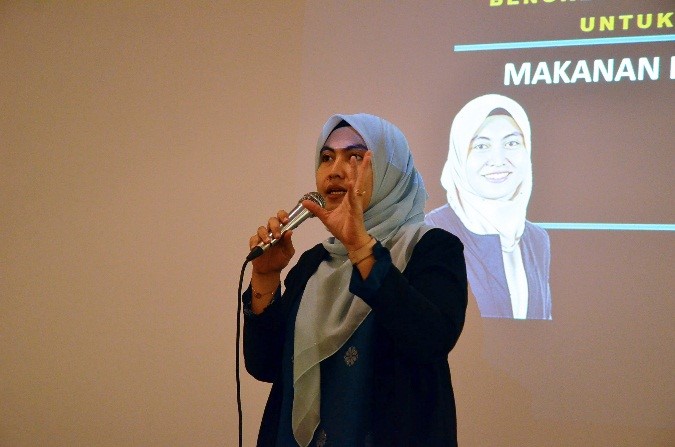
From left: Dr Wan Nurul Nadiah and Dr Nurul Aqilah’s presentation on live foods for farm fishing
The third session on Highly nutritious planktons (Makanan Hidup: Makhluk Kecil Plankton yang Bernutrisi Tinggi) saw Assoc Prof Dr Ts Dr Wan Nurul Nadiah Wan Rasdi from UMT informing the participants about the various live foods commonly used in the industry. She also discussed the many research conducted on live foods, specifically focusing on certain water species. Dr Nurul Aqilah Iberahim continued with her topic on Can fish get sick? (Adakah Ikan boleh Sakit?). She explained the categories of illnesses found in fishes and the cause of transmission, ways to determine the cause of the illnesses, as well as preventions and cures. She also emphasised that bio-security is an important component to manage the fish farm well. She advised participants to identify the pathogens because pathogens are everywhere, therefore controlling the number of fish stocks is important, as well as the need to quarantine and isolate ill fishes.
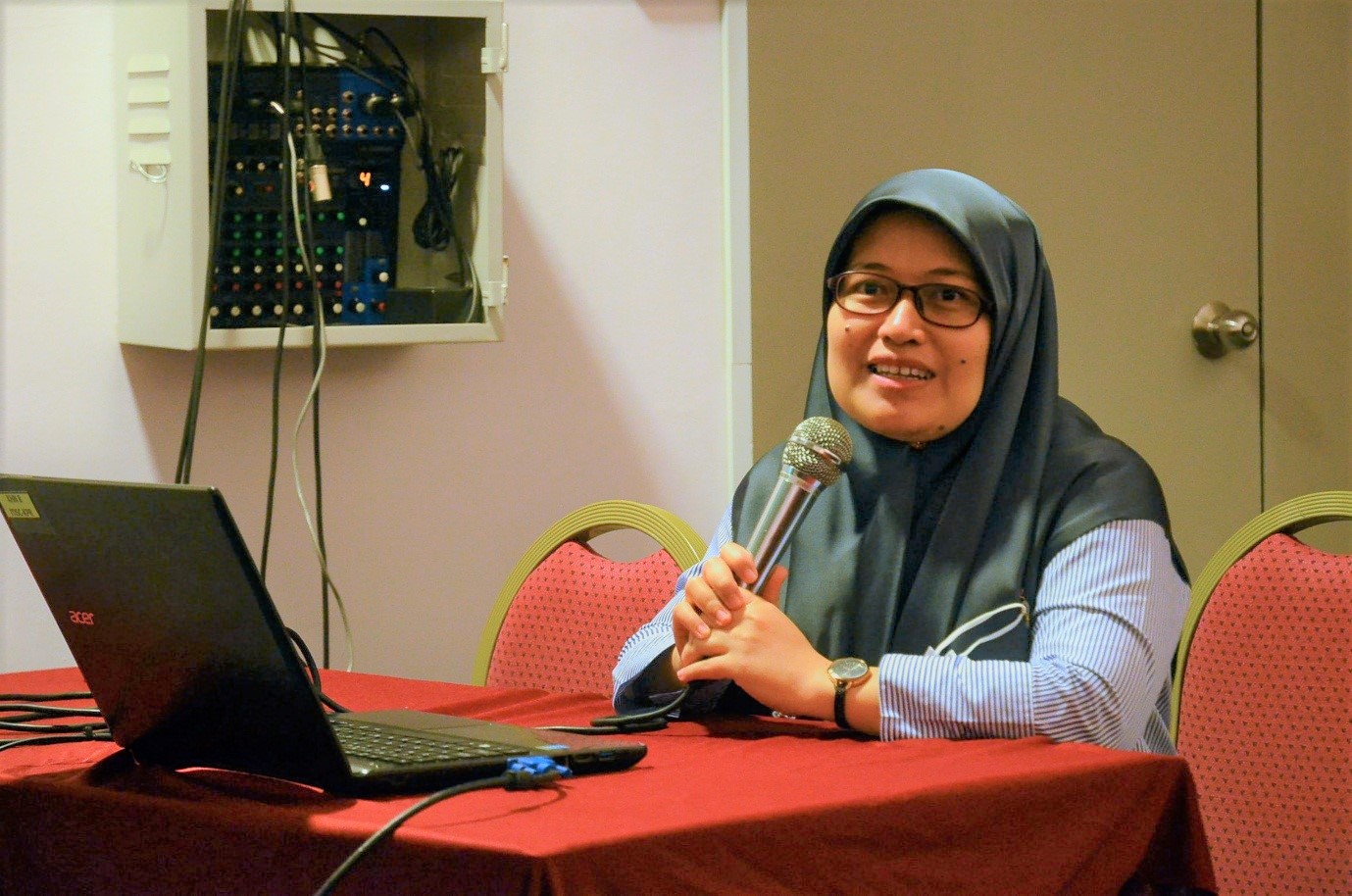
Dr Norhanizan listing the benefits of eco-tourism
The last session saw Dr Norhanizan Usaizan elucidating on the Potential of Abandoned Tin Mine and Lake as Attractive Eco-tourism Product (Potensi Bekas Lombong/Tasik Terbiar sebagai Produk Tarikan Eko-pelancongan). She explained the concept of eco-tourism, its seven principles, and the law governing eco-tourism. She then further talked about the reuse of abandoned tin mining areas and lakes as fish farming ponds and their potential to become a place of tourist attractions. Dr Norhanizan also elaborated on the strategies to transform these abandoned areas into eco-tourism areas.
© 2022 UNIVERSITI TUNKU ABDUL RAHMAN DU012(A).
Wholly owned by UTAR Education Foundation (200201010564(578227-M)) LEGAL STATEMENT TERM OF USAGE PRIVACY NOTICE